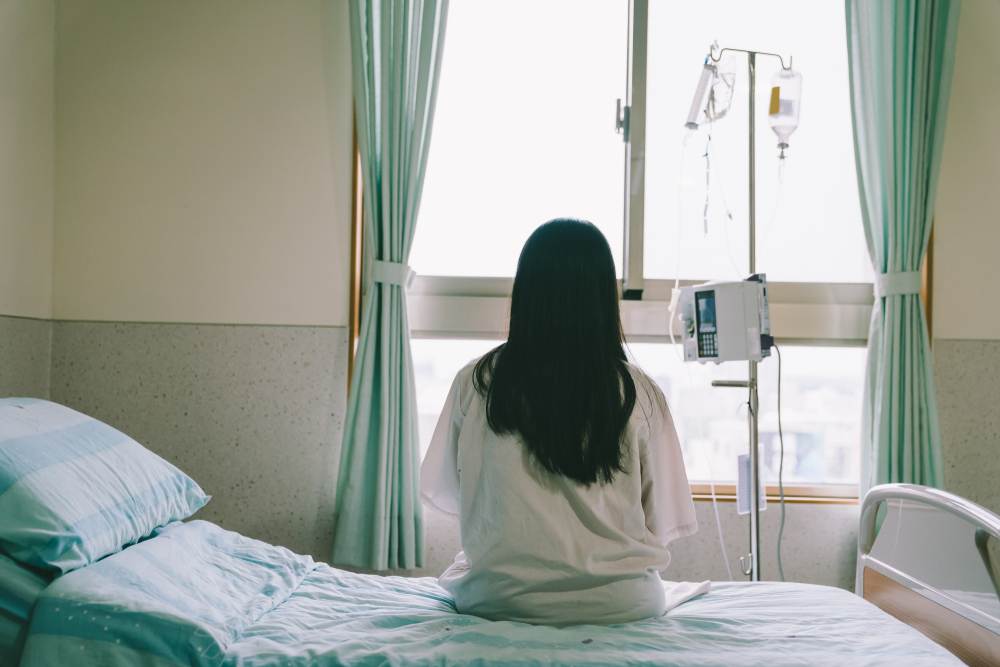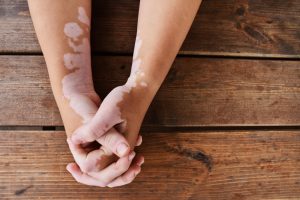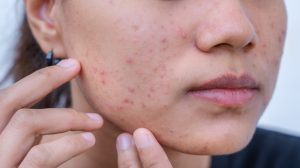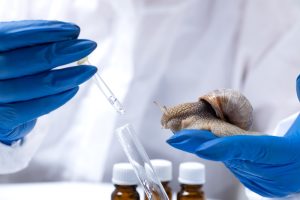Polycystic Ovary Syndrome (PCOS) is a prevalent hormonal disorder affecting many women of reproductive age.
For Maria Dominique Carpio, a 40-year-old working professional from the Philippines, experiencing excruciating dysmenorrhea and irregular menstrual period is but a regular occurrence that she has been enduring since she was in high school.
But there is nothing natural about her condition. At a young age, she was diagnosed with endometriosis and, years later in 2019, she has been found to have polycystic ovary syndrome (PCOS).
“I was prescribed a pill to regulate my period. I was supposed to have shots twice a month every six months but I opted not to that’s why the pill was prescribed,” Carpio told Medical Channel Asia. “I have always been thin but the hormonal imbalance made me gain weight. I [was also told] that I have close-to-none chances of having a baby but it’s OK… [Throughout my experience, I have realized that PCOS] can strike whether or not you have a healthy lifestyle. You can have the most balanced of diets but can still have it.”
Carpio’s case is not unique. Hundreds of thousands of women of childbearing age all over the world are suffering from this medical condition, the most common hormonal imbalance. Research shows that the global prevalence of PCOS in 2020 was between 2.2 to 48%. In Asia, many have the condition as well. A 2021 study reveals that the risk for PCOS was higher among South Asian women (3.3%) compared to Filipinas (1.5%) and Chinese women (1%).
The celebration of International Women’s Day is another apt opportunity to put the spotlight on this common yet often underdiagnosed disorder. By raising awareness, more women are empowered to have themselves checked and to better care for themselves whether they have the condition or not. Increased awareness and advocacy can help reduce stigma and increase support for women. So, let’s dive in.
Understanding PCOS
Many women with PCOS have higher-than-normal levels of male hormones known as androgens and are insulin resistant, which increases their risk for type 2 diabetes. According to Johns Hopkins Medicine, whilst several small fluid-filled sacs or cysts are often formed in ovaries if you have PCOS, it is not always the case. As the institution explains: you can have PCOS but not have cysts, or you may develop cysts but not have PCOS.
It is still unknown what is triggering the disorder, and often two or more in the individual’s family may be suffering from the same condition as well.
As shown in Carpio’s case, the hormonal imbalance leads to a variety of symptoms. The symptoms may vary depending on the individual and the severity of the condition, but the most common include:
- Excess facial and body hair (hirsutism), and male-pattern baldness.
- Irregular periods
- Infertility
- Weight gain
- Acne
- Excessive facial and body hair (hirsutism)
- Hair loss or male-pattern baldness
- Mood changes and depression
- High risk for diabetes, high cholesterol and blood pressure
Diagnostic and Treatment Procedures
Diagnosing PCOS in Asia can be challenging, as many women may not recognise or just endure the symptoms. If they do seek medical help, the diagnostic procedure often involves:
- Physical exam of the pelvis to check masses or any abnormalities
- Ultrasound to investigate the ovaries and endometrium (uterus lining)
- Blood tests for hormone levels
Doctors may also ask about family history, menstrual history, weight changes, and other symptoms to make a diagnosis.
As for treatment options, your doctor may recommend the following depending on the severity of your condition:
- Lifestyle changes, including exercise and diet modifications
- Medication
- Surgery
It is important for women diagnosed with PCOS to seek medical attention and support from their healthcare providers to find the best treatment plan based on their individual needs. Availing of community resources is also a great way to have the support they need as they live with this condition.
Conclusion
Living life with PCOS does not hinder one from living her best life. For Carpio, what is essential is that you don’t let your condition define you or your worth. Talk to your doctor today if you are experiencing any of the symptoms of PCOS.











